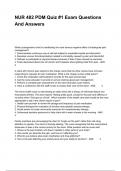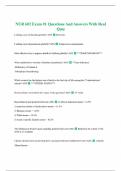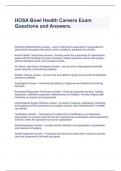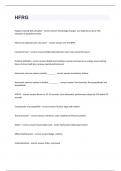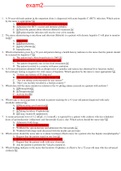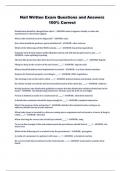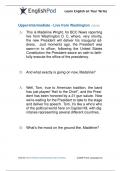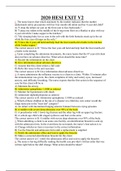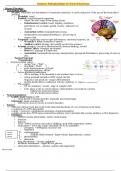Exam (elaborations)
NUR 482 PDM Quiz #1 Exam Questions And Answers
- Course
- NURS 482
- Institution
- St. Xavier University
Which postoperative client is manifesting the most serious negative effect of inadequate pain management? 1. Demonstrates continuous use of call bell related to unsatisfied needs and discomfort 2. Develops venous thromboembolism related to immobility caused by pain and discomfort 3. Refuses to...
[Show more]
